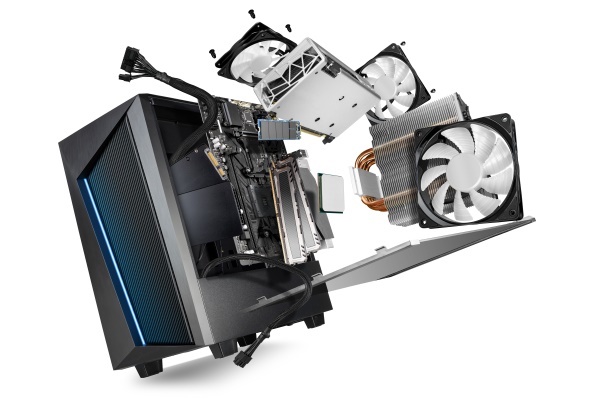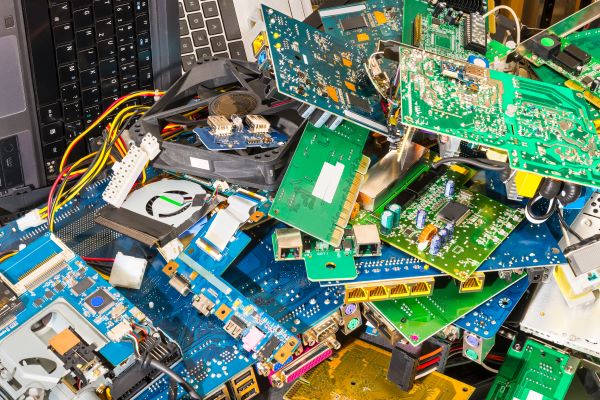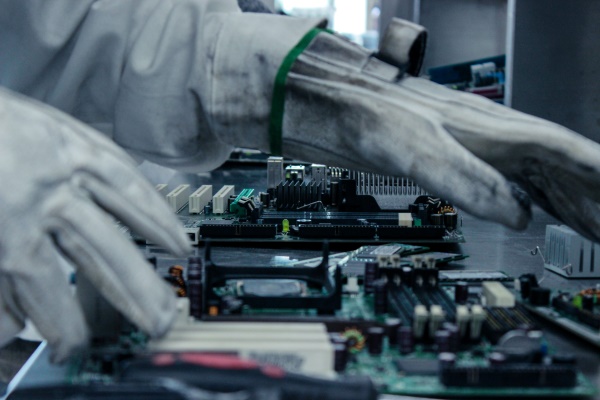
The disposal of electronic waste, including computers, is a growing concern for businesses and individuals alike. Improper disposal of these items can have serious negative consequences for the environment, human health, and business sustainability. Additionally, valuable materials such as copper, gold, and silver are wasted when they could be recovered and reused.
Proper computer disposal, on the other hand, offers numerous benefits. It helps reduce electronic waste, conserves natural resources, and minimises the risk of data breaches. Furthermore, it also helps businesses avoid potential legal liabilities and reputational damage associated with mishandling sensitive information. In this article, we will explore the benefits of proper computer disposal and provide guidance on how businesses can safely and responsibly dispose of their old computers.
Environmental Benefits of PC Recycling
PC recycling offers significant environmental benefits by reducing electronic waste (e-waste) in landfills and promoting sustainable practices. E-waste contains hazardous materials like lead, mercury, and cadmium, which can contaminate soil and groundwater if disposed of improperly. Moreover, discarded electronics also contribute to climate change due to the energy required for manufacturing new products.
By recycling computers, we conserve natural resources and decrease greenhouse gas emissions. Reusing and refurbishing computer components reduces the need for virgin raw materials, lowering carbon emissions associated with mining and processing. Proper computer disposal supports a circular economy and helps protect the environment.
Cost Savings of PC Recycling
 PC recycling can bring significant cost savings to businesses and individuals in the UK. One of the most straightforward monetary benefits is the opportunity to sell or donate still functional equipment. This can generate income and help offset the costs of upgrading to newer technology. Additionally, recycling computers reduces waste disposal costs, as companies no longer need to pay for expensive landfill fees or specialised electronic waste disposal services.
PC recycling can bring significant cost savings to businesses and individuals in the UK. One of the most straightforward monetary benefits is the opportunity to sell or donate still functional equipment. This can generate income and help offset the costs of upgrading to newer technology. Additionally, recycling computers reduces waste disposal costs, as companies no longer need to pay for expensive landfill fees or specialised electronic waste disposal services.
Data Security and Privacy Concerns
Improper data disposal poses significant risks to both businesses and consumers. When computer hardware is discarded without proper erasure of data, sensitive information can fall into the wrong hands, leading to identity theft, financial fraud, and reputational damage. This is particularly concerning for industries that handle confidential client data, such as healthcare, finance, and law.
Securely wiping data from hard drives and other storage devices is essential to prevent unauthorised access. This process involves overwriting data multiple times to ensure that it cannot be retrieved using specialised software. By doing so, businesses can protect their customers’ personal information and maintain trust in their brand. Moreover, secure data disposal gives peace of mind to consumers, knowing that their private details are safe even after they have disposed of their devices. It is crucial for businesses to prioritise data security and privacy concerns when disposing of old computers and other digital assets.
Compliance with Regulations and Laws
In the UK, there are several regulations and laws governing the disposal of electronics, including the Waste Electrical and Electronic Equipment (WEEE) Directive, the Restrictions on the Use of Certain Hazardous Substances (RoHS) Directive, and the General Data Protection Regulation (GDPR). These regulations aim to minimise the environmental impact of electronics disposal, protect human health, and promote sustainable practices. Non-compliance with these regulations can result in hefty penalties, including fines and legal action.
Moreover, non-compliance can damage a company’s reputation and credibility, making it harder to attract environmentally conscious customers and investors. Therefore, it is essential for businesses to understand and adhere to UK regulations and laws regarding electronics disposal to avoid penalties and maintain a sustainable reputation.
Community Engagement and Social Responsibility

By engaging with local communities and promoting sustainability, businesses can build trust and foster positive relationships with their customers. Community outreach and education initiatives can help raise awareness about the importance of electronics recycling and encourage individuals to take action. For example, businesses can partner with schools and community centres to host workshops and events that educate people about the environmental impact of electronics disposal and the benefits of recycling.
Additionally, businesses can promote sustainability and environmental stewardship by supporting local initiatives and organisations that align with their values. This can include sponsoring community clean-up events, partnering with local conservation groups, and supporting renewable energy projects. By demonstrating a commitment to social responsibility, businesses can enhance their brand reputation and customer loyalty, ultimately driving growth and success.
In summary, responsible electronics disposal is a critical issue for businesses and individuals alike. Recycling Your IT offers a comprehensive solution for PC recycling, ensuring that electronic waste is managed in an environmentally sound manner. By prioritising PC recycling, businesses can reduce their environmental footprint, protect sensitive data, and promote sustainability. We urge businesses to take action and make PC recycling a top priority. Contact Recycling Your IT today to learn more about our services and how we can help you dispose of your electronic waste responsibly. Together, we can create a more sustainable future.
